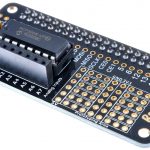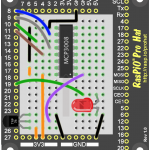
You may remember this time last year I KickStarted a 6-inch ruler with the most important RPi.GPIO code on it. I’ve been using it myself an awful lot in the last year when coding. So it won’t surprise you to learn that I’m now doing another one for GPIO Zero. Since GPIO Zero is about the easiest way imaginable to get into Python GPIO tinkering, I think this will be really helpful for people. I’ve already been using the prototypes and find them an extremely helpful reference. Here’s what it looks like… It’s twice as […more…]








